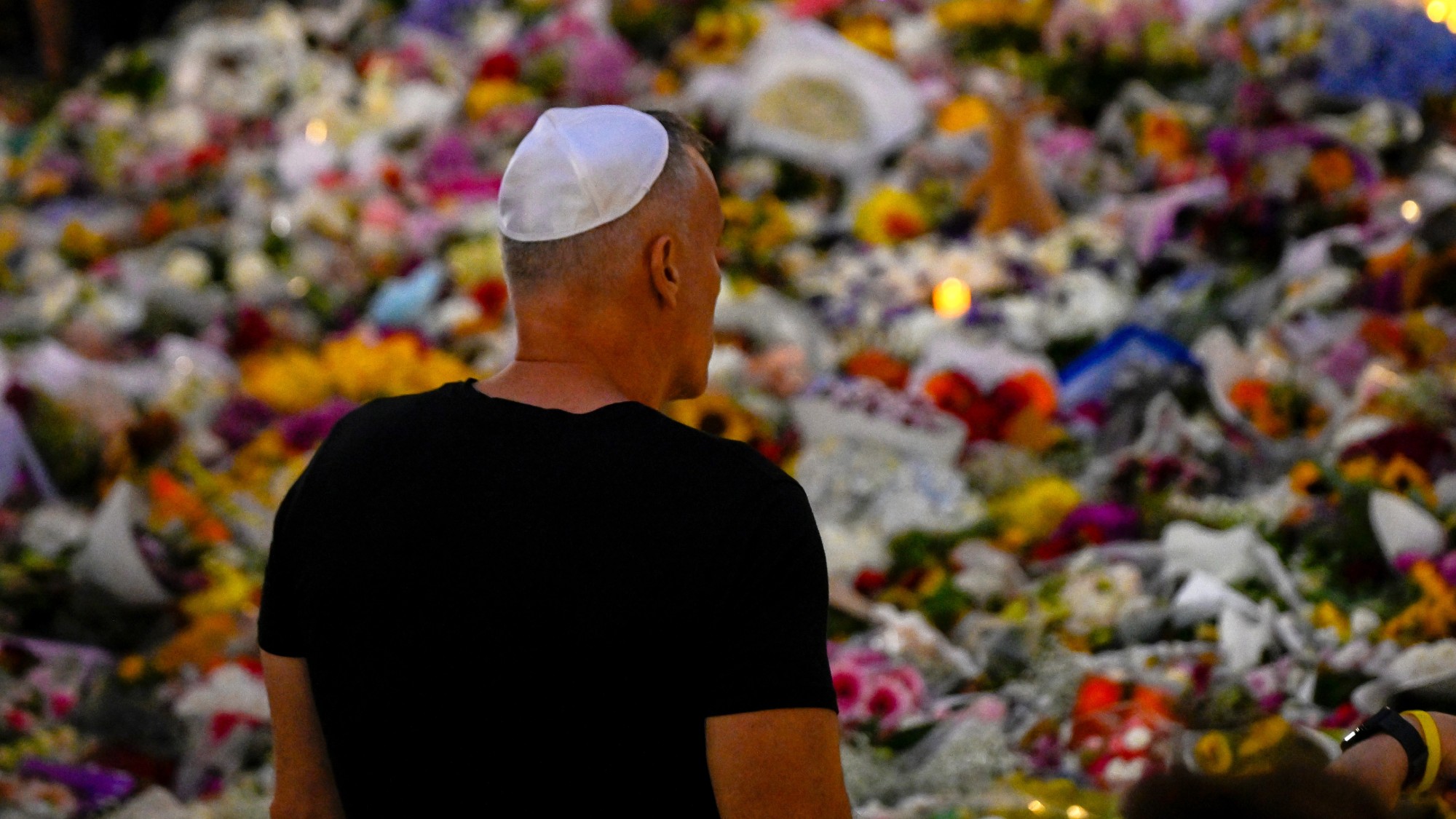Isis Beatles facing ‘fate worse than death’ in ‘America’s toughest jail’
British jihadis say they fear being sentenced to life in ‘hellhole’ supermax prison if convicted by US court

A free daily email with the biggest news stories of the day – and the best features from TheWeek.com
You are now subscribed
Your newsletter sign-up was successful
Two of the Isis Beatles are in fear of a “fate worse than the death penalty” if convicted and sentenced to life in a US maximum security prison after being extradited.
Alexanda Kotey and El-Shafee el-Sheikh, both from London, are facing rendition to the US after Secretary of State Mike Pompeo assured the UK that the duo would not face death sentences.
But the two jihadists - who are accused of belonging to a four-man cell of executioners in Syria - have said that “the worst thing that could happen” would be ending up incarcerated in the likes of what the Daily Mail describes as “America’s toughest jail”.
The Week
Escape your echo chamber. Get the facts behind the news, plus analysis from multiple perspectives.

Sign up for The Week's Free Newsletters
From our morning news briefing to a weekly Good News Newsletter, get the best of The Week delivered directly to your inbox.
From our morning news briefing to a weekly Good News Newsletter, get the best of The Week delivered directly to your inbox.
The United States Penitentiary Administrative Maximum Facility in Colorado is “currently home to 490 convicted terrorists, gang leaders and neo-Nazis”, says the newspaper. “Many have been transferred from other prisons after killing inmates or prison staff.”
Current inmates in the supermax jail - also known as “the Alcatraz of the Rockies” - include so-called “Shoe Bomber” Richard Reid, 9/11 terrorist Zacarias Moussaoui, and al-Qa’eda operatives behind the bombing of the World Trade Center in 1993.
According to The Sun, prisoners in the “hellhole” prison“are locked up alone for 23 hours a day in 12ft by 7ft cells without windows”. An Amnesty International report found that inmates spend years in solitary confinement and can go days “with only a few words spoken to them”.
One former convict who served time there told The Boston Globe that the jail was a “hi-tech version of hell, designed to shut down all sensory perception”.
A free daily email with the biggest news stories of the day – and the best features from TheWeek.com
Kotey and el-Sheikh are well aware of the reputation of such prisons. In an interview with Daily Mirror last year, Kotey said: “I would not want to spend time in a prison in the US. That would not be good.
"That would be the worst thing that could happen.”
A former British military intelligence officer has told the newspaper that those fears are justified when it comes to the Colorado jail, which is where they could end up if convicted.
“Justice in the States for Kotey and el-Sheikh will not be about rehabilitation, but serious punishment and revenge,” said the unnamed source. “Theirs will be a life of aching drudgery and boredom. The supermax strips away any comfort and distraction. It will be their worst nightmare.
“In many ways being locked up for the rest of your life in a featureless and excruciatingly monotonous place is for some people a fate worse than the death penalty.”
Joe Evans is the world news editor at TheWeek.co.uk. He joined the team in 2019 and held roles including deputy news editor and acting news editor before moving into his current position in early 2021. He is a regular panellist on The Week Unwrapped podcast, discussing politics and foreign affairs.
Before joining The Week, he worked as a freelance journalist covering the UK and Ireland for German newspapers and magazines. A series of features on Brexit and the Irish border got him nominated for the Hostwriter Prize in 2019. Prior to settling down in London, he lived and worked in Cambodia, where he ran communications for a non-governmental organisation and worked as a journalist covering Southeast Asia. He has a master’s degree in journalism from City, University of London, and before that studied English Literature at the University of Manchester.
-
 How the FCC’s ‘equal time’ rule works
How the FCC’s ‘equal time’ rule worksIn the Spotlight The law is at the heart of the Colbert-CBS conflict
-
 What is the endgame in the DHS shutdown?
What is the endgame in the DHS shutdown?Today’s Big Question Democrats want to rein in ICE’s immigration crackdown
-
 ‘Poor time management isn’t just an inconvenience’
‘Poor time management isn’t just an inconvenience’Instant Opinion Opinion, comment and editorials of the day
-
 How the ‘British FBI’ will work
How the ‘British FBI’ will workThe Explainer New National Police Service to focus on fighting terrorism, fraud and organised crime, freeing up local forces to tackle everyday offences
-
 How the Bondi massacre unfolded
How the Bondi massacre unfoldedIn Depth Deadly terrorist attack during Hanukkah celebration in Sydney prompts review of Australia’s gun control laws and reckoning over global rise in antisemitism
-
 Who is fuelling the flames of antisemitism in Australia?
Who is fuelling the flames of antisemitism in Australia?Today’s Big Question Deadly Bondi Beach attack the result of ‘permissive environment’ where warning signs were ‘too often left unchecked’
-
 Ten years after Bataclan: how has France changed?
Ten years after Bataclan: how has France changed?Today's Big Question ‘Act of war’ by Islamist terrorists was a ‘shockingly direct challenge’ to Western morality
-
 Arsonist who attacked Shapiro gets 25-50 years
Arsonist who attacked Shapiro gets 25-50 yearsSpeed Read Cody Balmer broke into the Pennsylvania governor’s mansion and tried to burn it down
-
 Manchester synagogue attack: what do we know?
Manchester synagogue attack: what do we know?Today’s Big Question Two dead after car and stabbing attack on holiest day in Jewish year
-
 The Miami Showband massacre, 50 years on
The Miami Showband massacre, 50 years onThe Explainer Unanswered questions remain over Troubles terror attack that killed three members of one of Ireland's most popular music acts
-
 Insects and sewer water: the alleged conditions at 'Alligator Alcatraz'
Insects and sewer water: the alleged conditions at 'Alligator Alcatraz'The Explainer Hundreds of immigrants with no criminal charges in the United States are being held at the Florida facility